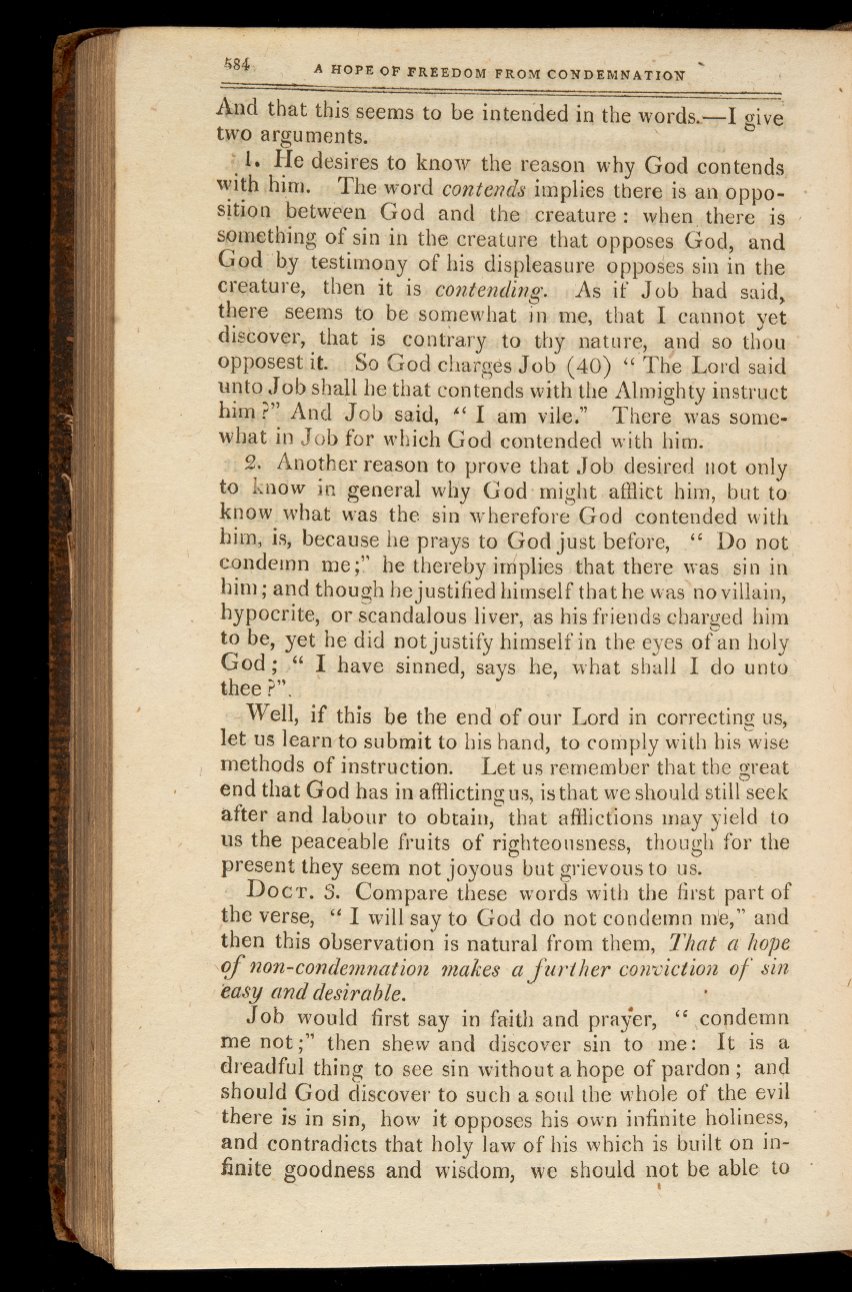

s84
A
HOPE
OP
FREEDOM
FROM
CONDEMNATION
And
that
this seems to be
intended
in
the words.
--I
give
two
arguments.
1,.
He
desires to know the reason
why
God
contends,
with
him.
The
word contends
implies
there
is
an
oppo-
sition between
God
and
the
creature
:
when
there
is
something
of
sin
in
the creature
that
opposes
God, and
God
by
testimony
of
his
displeasure
opposes
sin in
the
creature,
then
it
is
contending.
As
if
Job
had said,
there
seems
to be somewhat
in
me,
that
I cannot
yet
discover,
that
is
contrary
to
thy
nature,
and
so
thou
opposest
it. So
God
charges
Job
(40) "
The Lord
said
unto
Job
shall he
that
contends with
the Almighty
instruct
him
?"
And
Job
said,
"
I
am vile."
There
was
some-
what
in
Job
for
which
God contended
with
him.
2.
Another reason
to prove
that
Job
desired
not only
to know
in
general
why
God
might
afflict him,
but
to
know
what
was
the
sin
wherefore God contended
with
him,
is,
because
he
prays
to
God
just
before,
Do
not
condemn
me;"
he
thereby
implies
that
there
was sin in
him; and though
he
justified himself
that
he
was
no
villain,
hypocrite, or scandalous
liver, as his
friends charged
him
to
be,
yet
he did
not
justify himself
in
the
eyes
of
an holy
God
;
,"
I
have sinned,
says he,
what
shall
I
do
unto
thee
?
".
Well,
if
this be the
end
of
our
Lord
in
correcting
us,
let
us
learnt() submit
to
his
hand, to comply
with his
wise
methods
of
instruction.
Let
us
remember
that
the
great
end that God
has
in
afflicting
us, is
that
we
should
still
seek
after and labour
to
obtain,
that
afflictions may yield to
us the peaceable fruits
of
righteousness, though
for the
present
they
seem
not joyous but
grievous
to
us.
DOCT.
,",.
Compare
these words
with the first
part of
the
verse,
"
I
will say
to
God
do
not
condemn me," and
then
this
observation
is
natural
from them,
That
a
hope
of
non- condemnation
makes
a
further
conviction
of
sin
easy
and
desirable.
Job
would first say
in
faith
and
prayer,
"
condemn
me
not
;"
then
shew
and
discover
sin
to Me:
It
is
a
dreadful
thing to
see sin
without
a
hope
of
pardon
;
and
should
God
discover to
such a soul the whole
of
the
evil
there
is
in sin, how
it
opposes
his own
infinite
holiness,
and contradicts that
holy law
of
his which
is
built
on in-
finite goodness and
wisdom,
we
should
not
be
able
to

















